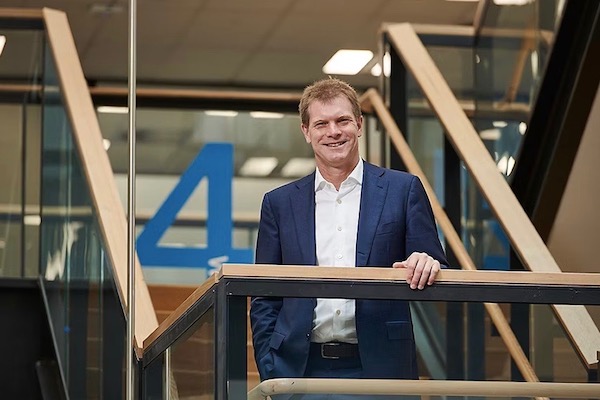Published on the 03/07/2024 | Written by Heather Wright

As company talks up AI…
Australia’s improving economy, and some belt tightening of its own, has helped Datacom back into net profit, with the company posting N$34 million in net profit after tax, after FY2023’s $2 million loss.
The company reported group revenue of NZ$1.47 billion, down from last year’s $1.49 billion, but profit before tax was up $8 million to $41 million, and group EBITDA was up 11 percent to $152 million.
“We have more than 20 pilots and PoCs in place across our business.”
That growth comes despite ‘challenging’ economic conditions in New Zealand, where Datacom noted a reduction in spend, driven by market uncertainty.
However, Greg Davidson, Datacom Group chief executive, remained optimistic saying the business is well positioned to support Kiwi customers as they navigate and balance increasing operating costs against growing technology requirements and cyber security threats.
Last July, Datacom signed an all-of-government deal with New Zealand’s Department of Internal Affairs to provide eligible agencies with public cloud and professional services under standardised terms.
It’s a different story across the Tasman, with stabilising market conditions enabling strong growth for Datacom’s Australian operations, driven largely by significant contract wins in the public sector as government departments continue to digitise at pace.
Its Australian deals include signing Australian energy provider Alinta for a new contact centre-as-a-service solution using Genesys Cloud CX last July.
In April this year the company launched a new custom-designed integration centre in South Australia – its third for the state – with a new warehouse facility also opened in NSW.
Davidson says the company has embarked on a program to streamline and improve its operations and ensure the nearly 60-year-old company is set for future growth.
“The ability to evolve and adapt our business to meet the changing needs of our customers has been critical to our success,” he says.
In order to ensure a long-term sustainable growth for Datacom, Davidson says ‘we are building a new foundation for the future’.
Dedicated teams will be established in-market over the next six months. Those teams will be underpinned by the four lines of business – professional services, managed operations, SaaS products and infrastructure products, which includes data centres, private cloud, networking and security.
In preparation for that, a new director of professional services, Sunny Katira, has been appointed, along with a director of infrastructure products, Mark Hile.
Staff numbers across Australia, New Zealand and Asia Pacific were down on last year, falling from 6650 as of 31 March 2023 to 6131 at the end of March 2024.
Just as it did last year, Datacom was talking up AI, with Davidson noting the Group’s focus for the coming year will be not only on continuing to implement AI into its own operations, but also in taking a ‘leadership role’ in identifying opportunities and potential pain points for implementation across Australia and New Zealand, including cybersecurity, data storage and governance.
As a business, Datacom is ‘well down the path’ of implementing and exploring AI and identifying use cases to enhance business operations and processes, including in its finance and cyber divisions, SaaS products and customer delivery teams.
The company is using AI and machine learning in its payroll business for anomaly detection to improve payroll compliance and leave calculations and reduce the impact of common payroll errors, Davidson says.
It recently launched a new Payroll Assistant to help trained payroll professionals with ‘safe, intelligent access to the full body of payroll regulations’.
“We have more than 20 pilots and PoCs in place across our business, some internal, some external – all of which are designed to enhance user experience, drive efficiencies and optimise operations,” Davidson says.
“Many of these are commercially sensitive but once out of the pilot phase we look forward to sharing more on our experience with the market in the hope it will prompt more of the organisations that are ‘on the fence’ to identify AI use cases that make sense for their business.
“We know there is huge opportunity around AI – for our business, our customers and the economy,” Davidson says.
He says Datacom’s four New Zealand based data centres, which operate on renewable energy, are well placed to cater for the surge in AI data requirements.



























